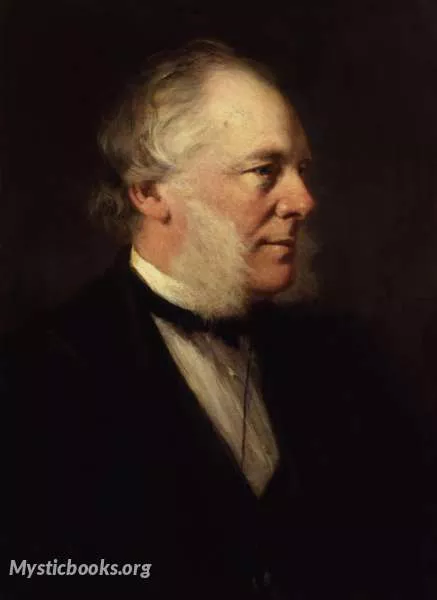
Timeline
Title
Country/Nationality
Samuel Smiles
Samuel Smiles was a Scottish author and government reformer. Although he campaigned on a Chartist platform, he promoted the idea that more progress would come from new attitudes than from new laws. His primary work, Self-Help (1859), promoted thrift and claimed that poverty was caused largely by irresponsible habits, while also attacking materialism and laissez-faire government. It has been called "the bible of mid-Victorian liberalism" and had lasting effects on British political thought.
Born in Haddington, East Lothian, Scotland, Smiles was the son of Janet Wilson of Dalkeith and Samuel Smiles of Haddington. He was one of eleven surviving children. While his family members were strict Reformed Presbyterians, he did not practice. He studied at a local school, leaving at the age of 14. He apprenticed to be a doctor under Dr. Robert Lewins. This arrangement enabled Smiles to study medicine at the University of Edinburgh in 1829. There he furthered his interest in politics, and became a strong supporter of Joseph Hume. During this time, Samuel junior contracted a lung disease, and his father was advised to send him on a long sea voyage.
His father died in the 1832 cholera epidemic, but Smiles was enabled to continue with his studies because he was supported by his mother. She ran the small family general store firm in the belief that the "Lord will provide". Her example of working ceaselessly to support herself and his nine younger siblings strongly influenced Smiles's future life, but he developed a benign and tolerant outlook that was sometimes at odds with that of his Reformed Presbyterian forebears.
In 1837, he wrote articles for the Edinburgh Weekly Chronicle and the Leeds Times, campaigning for parliamentary reform. In November 1838, Smiles was invited to become the editor of the Leeds Times, a position he accepted and filled until 1842. In May 1840, Smiles became secretary to the Leeds Parliamentary Reform Association, an organisation that held to the six objectives of Chartism: universal suffrage for all men over the age of 21; equal-sized electoral districts; voting by secret ballot; an end to the need of MPs to qualify for Parliament, other than by winning an election; pay for MPs; and annual Parliaments.
As editor of the Leeds Times, he advocated radical causes ranging from women's suffrage to free trade and parliamentary reform. By the late 1840s, however, Smiles became concerned about the advocation of physical force by Chartists Feargus O'Connor and George Julian Harney, although he seems to have agreed with them that the movement's current tactics were not effective, saying that "mere political reform will not cure the manifold evils which now afflict society".
On 7 December 1843, Samuel married Sarah Ann Holmes Dixon in Leeds. They had three daughters and two sons.
In 1845, he left the Leeds Times and became a secretary for the newly formed Leeds & Thirsk Railway. After nine years, he worked for the South Eastern Railway.
In the 1850s, Smiles abandoned his interest in parliament and decided that self-help was the most important place of reform. In 1859, he published his book Self-Help; with Illustrations of Character and Conduct.
Smiles intended to publish a book titled Conduct, in 1896. He submitted it to his publisher, but John Murray declined to publish the book. In 1898, publication was denied again.
After the death of Smiles in 1904, the manuscript of Conduct was found in his desk and, on the advice of John Murray, was destroyed. No copy is known to exist.
On 16 April 1904, Samuel Smiles died in Kensington, London and was buried in Brompton Cemetery. Shortly before his death, he was reportedly offered a knighthood, which he declined to accept.
Books by Samuel Smiles
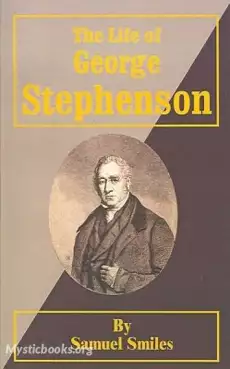
George and Robert Stephenson
George Stephenson did not invent the steam engine, that was due to Newcomen and later to James Watt. He did not invent the steam locomotive, that was due to a number of people including Cugnot, Trevithick and others. He did not invent the Railway. Ra...
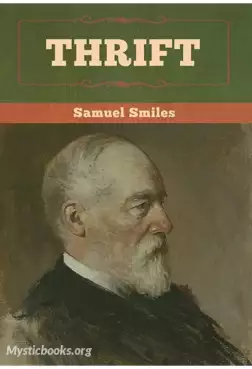
Thrift
"This book is intended as a sequel to Self-Help and Character. It might, indeed, have appeared as an introduction to these volumes; for Thrift is the basis of Self-Help, and the foundation of much that is excellent in Character. The object of this bo...
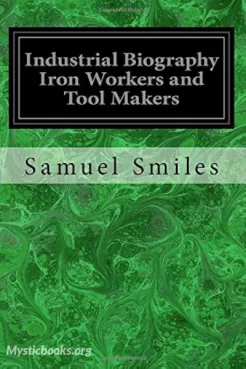
Industrial Biography: Iron Workers and Tool Makers
Iron is the soul of civilization. In his book Industrial Biography: Iron Workers and Tool Makers, Samuel Smiles tells the stories of the people who have worked with iron throughout history. From the ancient blacksmiths to the modern industrialists,...

Happy Homes and the Hearts that Make Them: Or Thrifty People and why They Thrive
Published in the Victorian era, "Happy Homes and the Hearts that Make Them" offers insights into Victorian societal values and aspirations. Samuel Smiles, known for his self-help philosophy, explores themes of domesticity, financial prudence, and per...

Character
This book delves into the essential qualities that define individuals of exceptional character. Drawing from historical and contemporary examples, Samuel Smiles explores the virtues, ethical principles, and inner strength that shape truly great perso...
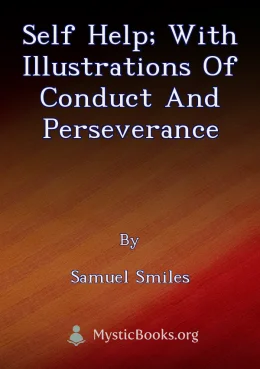
Self Help; with Illustrations of Conduct and Perseverance
Published in 1859, *Self-Help* is a non-fiction work that explores the principles of personal success through hard work, perseverance, and ethical conduct. It features numerous biographical sketches of individuals from various walks of life who achie...